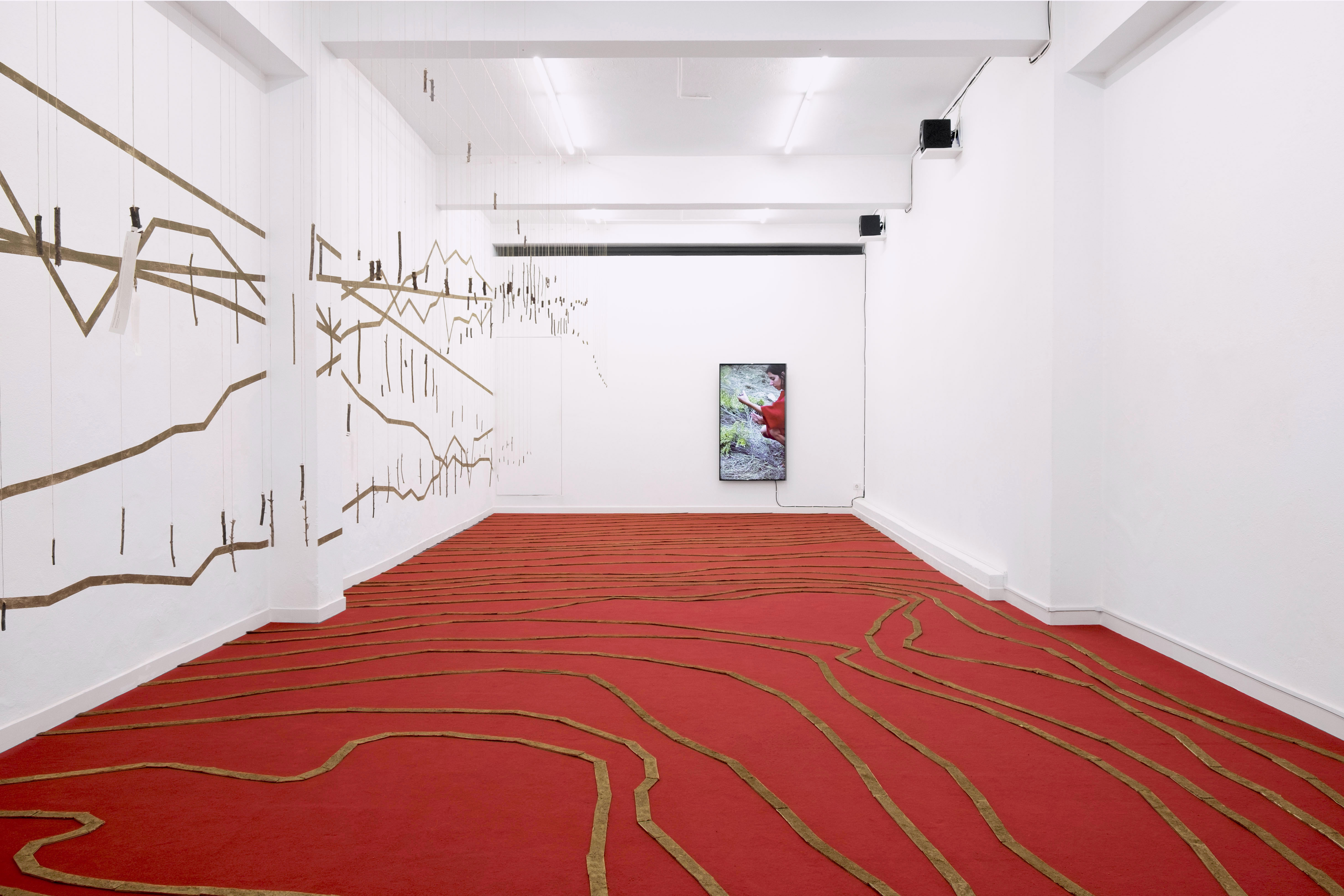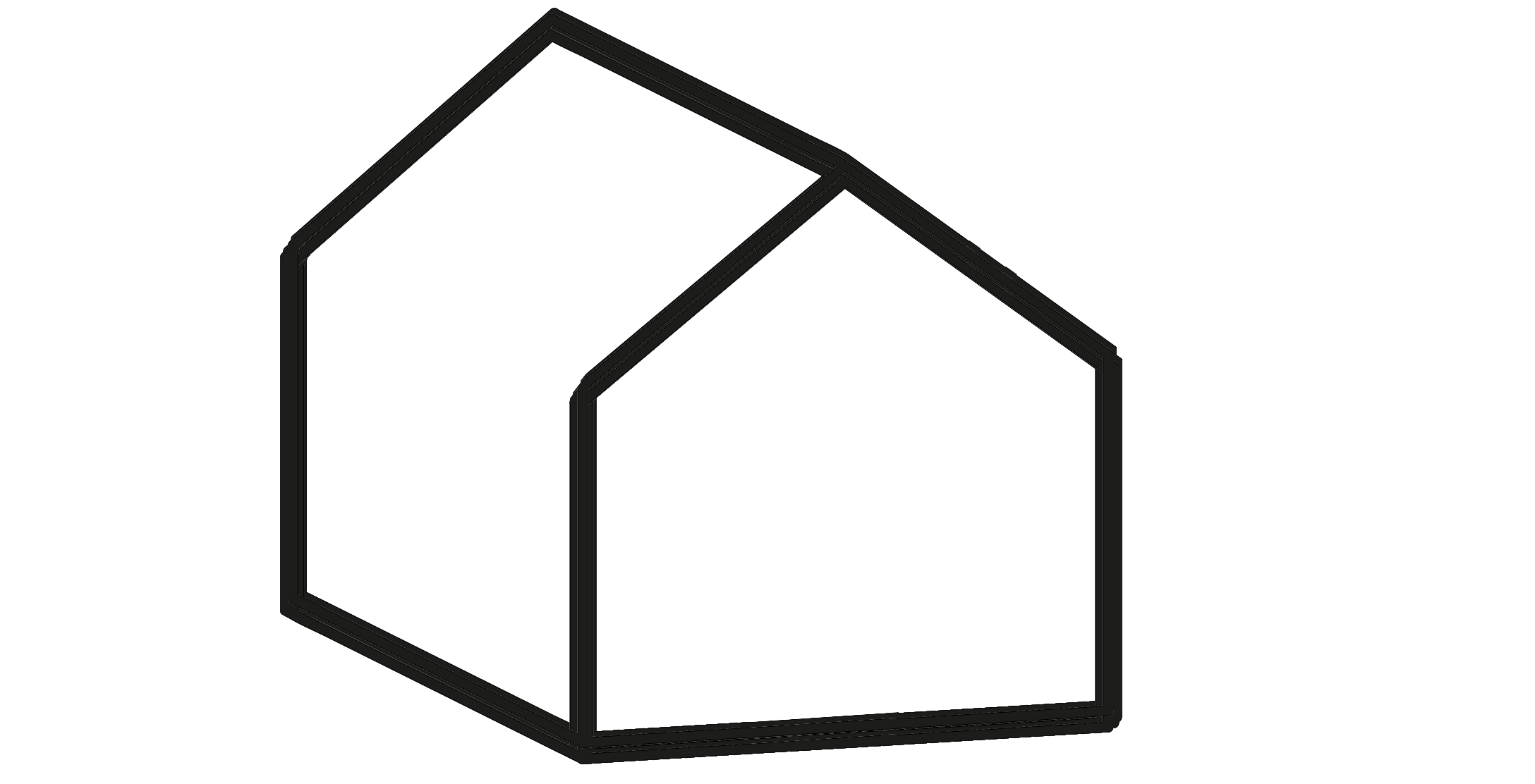Landra


Landra, nome dado à terra e à prática artística de Sara Rodrigues e Rodrigo B. Camacho, é uma homenagem às bolotas do carvalho alvarinho, chamadas “landras” no Noroeste Ibérico. A dupla revê nelas uma cultura de autonomia, soberania e auto suficiência que procuram recuperar, alinhando-se com uma prática de viver e fazer em sintonia com os ritmos e ciclos naturais.
Landra é também o nome dado à casa auto sustentável e sem resíduos da dupla no Norte de Portugal. É a partir daí que continuam a sua pesquisa no caminho de uma vida ambientalmente ética.
Sara e Rodrigo conheceram-se em Londres, onde estudaram e, desde 2015, têm vindo a trabalhar juntos. Os seus projectos desenvolvem-se por via do vídeo e da composição audiovisual, da performance, da instalação e da intervenção no espaço público. Interessam-se pela criação de sistemas que continuem no tempo de forma orgânica; que apresentem flexibilidade e capacidade de resposta face à mudança constante. Para além da carreira artística, formaram-se em permacultura e microbiologia, investigando e aplicando estes conhecimentos na sua prática.
Durante a residência no Celeiro, Landra irão aprofundar o seu projeto A Grande Sucessão, iniciado na residência Encontros da Primavera, em Picote e apresentado na Drogaria / aSede, no Porto.
Neste projeto, Landra analisam ao microscópio uma grande variedade de tipos de solo, tentando entender como os microrganismos interagem entre si e com o ambiente à sua volta, entendendo que esses organismos vivos, invisíveis e inaudíveis, produzem o próprio ambiente de onde emergem plantas e animais. Na lógica de A Grande Sucessão e na ausência de limitações, passo a passo e ao longo de mais ou menos tempo, todos os biomas terrestres caminham em direção à antiga floresta.
Na tentativa de entender melhor nosso lugar no planeta, Landra procura traduzir estas complexas redes de vida do solo em sons – demonstrando como, se desinibidas, essas redes se expandem em formas cada vez mais diversas e complexas gerando uma sucessão de estados ecológicos resilientes.
Landra é também o nome dado à casa auto sustentável e sem resíduos da dupla no Norte de Portugal. É a partir daí que continuam a sua pesquisa no caminho de uma vida ambientalmente ética.
Sara e Rodrigo conheceram-se em Londres, onde estudaram e, desde 2015, têm vindo a trabalhar juntos. Os seus projectos desenvolvem-se por via do vídeo e da composição audiovisual, da performance, da instalação e da intervenção no espaço público. Interessam-se pela criação de sistemas que continuem no tempo de forma orgânica; que apresentem flexibilidade e capacidade de resposta face à mudança constante. Para além da carreira artística, formaram-se em permacultura e microbiologia, investigando e aplicando estes conhecimentos na sua prática.
Durante a residência no Celeiro, Landra irão aprofundar o seu projeto A Grande Sucessão, iniciado na residência Encontros da Primavera, em Picote e apresentado na Drogaria / aSede, no Porto.
Neste projeto, Landra analisam ao microscópio uma grande variedade de tipos de solo, tentando entender como os microrganismos interagem entre si e com o ambiente à sua volta, entendendo que esses organismos vivos, invisíveis e inaudíveis, produzem o próprio ambiente de onde emergem plantas e animais. Na lógica de A Grande Sucessão e na ausência de limitações, passo a passo e ao longo de mais ou menos tempo, todos os biomas terrestres caminham em direção à antiga floresta.
Na tentativa de entender melhor nosso lugar no planeta, Landra procura traduzir estas complexas redes de vida do solo em sons – demonstrando como, se desinibidas, essas redes se expandem em formas cada vez mais diversas e complexas gerando uma sucessão de estados ecológicos resilientes.
Landra, the name given to the land and to the artistic practice of Sara Rodrigues and Rodrigo B. Camacho, pays homage to the acorns or “landras” of the Alvarinho oak, native to the Iberian Northwest. The artist duo sees in the landras a culture of autonomy, sovereignty and self-sufficiency that they seek to recover, aligning themselves with a practice of living and doing in tune with natural rhythms and cycles.
Landra is also the name given to the pair’s zero-waste, self-sustainable home in Northern Portugal. There, they continue to research, host educational programming and pursue environmentally ethical living.
Sara and Rodrigo met in London in 2015 and have since been working together. They develop projects through video and audiovisual composition, performance, installation and intervention in public space.
They are interested in creating systems that continue over time in an organic way; that are flexible and responsive to constant change. In addition to their artistic career, they graduated in permaculture and microbiology, investigating and applying this knowledge in practice.
During their residency at Celeiro, they will further explore their project, The Great Succession which they began at the Encontros da Primavera residency, Picote and presented at Drogaria / aSede, Porto.
In The Great Succession, Landra analyze, through a microscope, a wide variety of soil types, trying to understand how microorganisms interact with each other and with their environment. It becomes clear that these living organisms, invisible and inaudible, produce the very environment from which plants and animals emerge. In the absence of limitations, step by step, all terrestrial biomes walk towards the ancient forest. In an attempt to better understand our place on this planet, Landra translates these rich soil life networks into sounds– demonstrating how if uninhibited, these networks expand in increasingly diverse and complex forms, and into a succession of well-defined ecological states.
Landra is also the name given to the pair’s zero-waste, self-sustainable home in Northern Portugal. There, they continue to research, host educational programming and pursue environmentally ethical living.
Sara and Rodrigo met in London in 2015 and have since been working together. They develop projects through video and audiovisual composition, performance, installation and intervention in public space.
They are interested in creating systems that continue over time in an organic way; that are flexible and responsive to constant change. In addition to their artistic career, they graduated in permaculture and microbiology, investigating and applying this knowledge in practice.
During their residency at Celeiro, they will further explore their project, The Great Succession which they began at the Encontros da Primavera residency, Picote and presented at Drogaria / aSede, Porto.
In The Great Succession, Landra analyze, through a microscope, a wide variety of soil types, trying to understand how microorganisms interact with each other and with their environment. It becomes clear that these living organisms, invisible and inaudible, produce the very environment from which plants and animals emerge. In the absence of limitations, step by step, all terrestrial biomes walk towards the ancient forest. In an attempt to better understand our place on this planet, Landra translates these rich soil life networks into sounds– demonstrating how if uninhibited, these networks expand in increasingly diverse and complex forms, and into a succession of well-defined ecological states.


